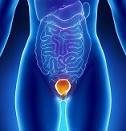Advertisment
Novel treatment approach for bladder pain using a herpes simplex virus vector reported

Severe chronic pain associated with conditions such as bladder pain syndrome/interstitial cystitis often require the use of opioid medication. An alternative treatment strategy increases the levels of a naturally occurring painkiller in and around the nerves that deliver pain signals to the bladder. This new therapeutic approach is described in an article in Human Gene Therapy. The article is available free on the Human Gene Therapy website at http://www.liebertpub.com/hum.
Hitoshi Yokoyama, MD and colleagues from University of Pittsburgh School of Medicine (PA), Shinshu University School of Medicine (Matsumoto, Japan), and Diamyd (Pittsburgh, PA) describe a gene therapy technique in which they inject directly into the bladder wall the gene for enkephalin, an opioid compound produced by the human body. The gene is transported into the target cells via a herpes simplex virus vector that is incapable of replication.
In the article “Effects of Herpes Simplex Virus Vector-Mediated Enkephalin Gene Therapy on Bladder Overactivity and Nociception,” the authors demonstrate high levels of enkephalin gene expression in the treated rats and significantly lower measures of pain compared to untreated animals when exposed to stimuli intended to induce bladder irritation. The researchers note that a similar gene therapy delivery vector carrying an enkephalin gene has been used in clinical studies in human patients to treat cancer-related pain, and was shown to be well tolerated and safe and to provide substantial pain relief.
“This is a very innovative application of Herpes Simplex Virus gene therapy in the treatment of a common and painful clinical problem that otherwise requires chronic use of narcotics,” says James M. Wilson, MD, PhD, Editor-in-Chief, and Director of the Gene Therapy Program, Department of Pathology and Laboratory Medicine, University of Pennsylvania Perelman School of Medicine, Philadelphia.





